MercoPress. South Atlantic News Agency
Tag: Argentine economy
-
Friday, September 13th 2019 - 11:47 UTC
IMF remains strongly engaged with Argentina; meeting with officials scheduled for later this month

The International Monetary Fund is continuing talks with Argentina as authorities there try to stem spiraling economic problems in Latin America’s third-largest economy, IMF spokesman Gerry Rice told reporters on Thursday.
-
Wednesday, September 4th 2019 - 09:58 UTC
Signs of budding of financial stability in Argentina: Peso stronger and country risk falls
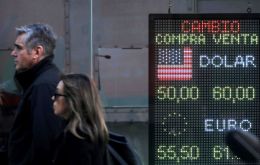
Argentina's peso surged on Tuesday, pumped up by Wall Street traders cheering President Mauricio Macri's capital controls that are aimed at protecting the beleaguered currency. The peso closed 5.39% higher at 55.98 per U.S. dollar, traders said, its strongest level in a week after a near-record low close on Friday.
-
Tuesday, August 6th 2019 - 09:57 UTC
US dollar up in Argentina on fears of Sunday's primaries and the global trade dispute
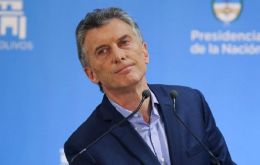
Argentina’s peso fell 1.8% on Monday to 45.49 per U.S. dollar due to uncertainty over the country’s presidential election and the fallout from U.S.-China trade tensions, traders said.
-
Friday, June 14th 2019 - 09:40 UTC
Argentine inflation 3.1% in May and 57.3% in twelve months
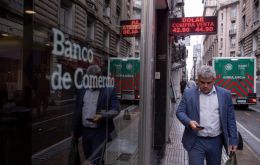
Argentine consumer prices rose 3.1% in May, the government’s official statistics agency said on Thursday. Accumulated inflation in the 12 months through May came to 57.3%, and year-to-date inflation was 19.2%, according to the National Census and Statistics Institute, known by its acronym, INDEC.
-
Thursday, June 6th 2019 - 08:37 UTC
Argentina's industrial output down 8.8%; car production falls 35.3% in twelve months

Argentina’s industrial output fell 8.8% in April compared with the same month a year ago, official data showed on Wednesday, marking 12 straight months of production losses as the economy struggles with recession and rapidly-rising consumer prices.
-
Monday, May 27th 2019 - 03:32 UTC
New setback for Argentina's economy shown in leading report
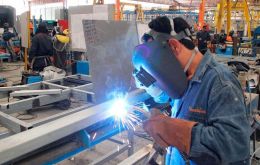
Argentina's beleaguered industrial activity fell 10.3% in April due to the peso's devaluation coupled with rampant inflation, the Argentine Confederation of the Medium-Size Company (CAME) reported over the weekend.
-
Thursday, May 9th 2019 - 09:57 UTC
Trump spoke to Macri to strongly support Argentina's economic reforms
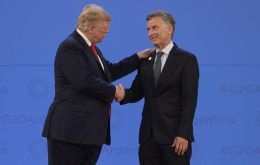
US President Donald Trump spoke with Argentina's leader Mauricio Macri on Wednesday and voiced support for the country's economic reforms, the White House said in a statement.
-
Saturday, May 4th 2019 - 09:56 UTC
Brazil and Argentine currencies recover against a weaker US dollar

Latin American currencies ended on a high note on Friday against a weaker dollar after robust U.S. jobs data painted a brighter picture for global growth and gave the U.S. central bank more reason to stay on its dovish path.
-
Tuesday, April 30th 2019 - 09:59 UTC
Argentine Peso gains strength as IMF agrees to more central bank flexibility
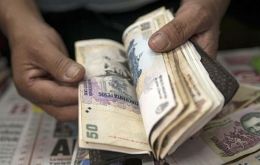
Argentina’s embattled peso gained strength on Monday after the central bank said it would ease limits on its foreign exchange market interventions, signaling its willingness to sell reserves in an effort to better control the volatility of the local currency. The peso began the session up 3.37% and closed 3.56% stronger at 44.37 per U.S. dollar.
-
Tuesday, April 30th 2019 - 09:55 UTC
Major strike and march announced for this Tuesday in Argentina, but unions remain divided
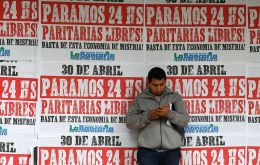
A national strike will halt much of shale-rich Argentina's economy on Tuesday amid growing investor concern that market-oriented president Mauricio Macri will lose a bid for re-election in October, swinging Argentina back toward state intervention.
